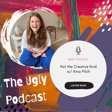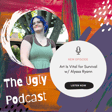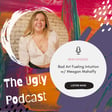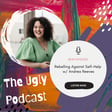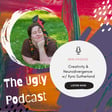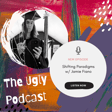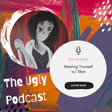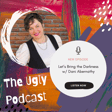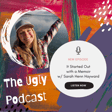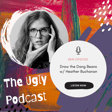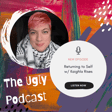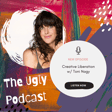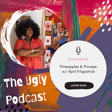
Creating with Kiddos w/ Rey Ward
My guest today is Rey Ward, a youth development professional who uses art and creativity as part of a trauma-informed practice when serving young clients. Working with kids has taught them infinite lessons on seeing beauty in imperfection and finding healing in the process rather than the result. We talk about how creativity gives us space to run free and get our brain zoomies out—because we’re just a bunch of weird little animals after all—and how kids need that unstructured space to let go of the perfectionism that’s already ingrained in them at such a young age.
There is this compulsion to treat art like an assignment—How do I do it? What are the rules?—and we talk about the freedom that comes along with reframing your worldview to see that there are no rules in creativity (or in life). We have the freedom to make this life what we want it to be. So how can we connect to those parts of ourselves that want to roam? How can we center those parts of ourselves that are often pushed to the wayside? What do you really want and how do you want to express yourself? We discuss how ugly art has helped us start to find these answers for ourselves.
References:
Favianna Rodriguez on Instagram @favianna1
